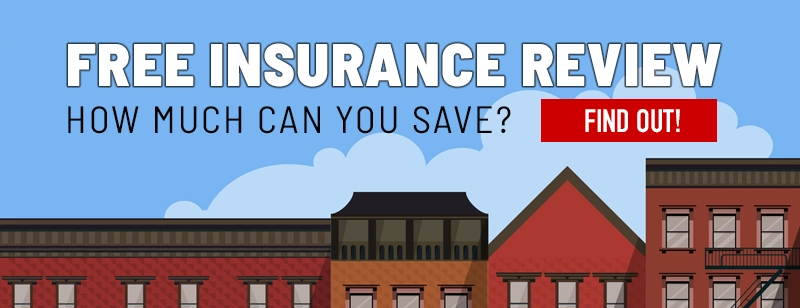Can I Protect My Rental Property with Homeowners Insurance?

You’ve just bought a rental property or you’re about to rent your home. Maybe you’ve inherited a home and want to rent it rather than sell it. Or you’ve bought a multi-family home and plan to live in one unit and rent the rest. It’s already protected by homeowners insurance, so all you need to do is find tenants and sign a lease, right?
As with so many other insurance issues, the answer is “it depends.”
Will Homeowners Insurance Cover Rentals?
Before you ask, “Does my homeowners insurance cover my rental property?”, it’s important to understand the differences between the two types of insurance.
Generally speaking, homeowners insurance offers the following types of protection:
- Dwelling coverage. This basic coverage protects the building itself, as well as attached structures (e.g., decks), from sudden, accidental loss.
- Personal contents. These policies also cover the owner’s personal belongings, though some items such as jewelry, artwork, and others often require separate protection. (Even if a carrier does include rental units under a homeowners policy, owners should require tenants to have renters insurance.)
- Liability protection. Most policies include some amount of protection against lawsuits arising from slips and falls and other mishaps. However, the exposure risk increases when multiple households live in a building.
Some carriers will cover dwellings of up to four units under homeowners insurance. Others, however, restrict homeowners coverage to buildings with no more than three units. If your building qualifies and your homeowners policy covers it, you’re good to go, right?
The missing piece is what homeowners insurance doesn’t cover.
How Is Landlord Insurance Different from Homeowners Insurance?
Landlords face additional risks that homeowners don’t, which is why landlord policies typically cost more. It comes down to basic math: more people = more risk. If three separate households cook dinner in a building each night, the odds of a kitchen fire increase. More residents also mean more repair people, more delivery people, and more activity that require liability protection.
Plus, landlord policies include special protections, such as rent loss coverage. If renters have to move out while repairs are made (due to a covered loss), this coverage will replace lost rental income for up to 12 months. Do you want the double whammy of paying for repairs and losing rental income while a unit is empty?
What Other Landlord Insurance Coverage Is Recommended?
Here in the greater New York City market, other common protections include the following:
- Ordinance or law. This coverage provides extra funds if building repairs require upgrades to comply with current construction codes—a common occurrence here in the Northeast. ·
- Backup of sewers or drains. Unlike flood protection, which covers outside water coming in, this coverage includes damage caused when the sewer system backs up inside the building.
- Water damage legal liability. This coverage protects owners against claims arising from water damage to neighboring properties.
Do My Tenants Need Insurance If I Have a Landlord Policy?
Many landlords require that renters have their own insurance policies, and for good reason: it offers critical protection.
Renters insurance, which is reasonably priced, covers your tenants’ losses due to theft or damage (such as if a pipe bursts and floods their unit). It also offers liability coverage if, say, a tenant’s dog bites someone. These are coverages that a landlord policy won’t include. It will even cover their possessions elsewhere—for example, if something is stolen from their vehicle.
Bottom Line: Get an Expert Opinion
The more important issue is to make sure that your policy offers the protection you need, based on your specific situation. To discuss your unique needs, call our office at 877-576-5200 or request a no-obligation insurance review.

